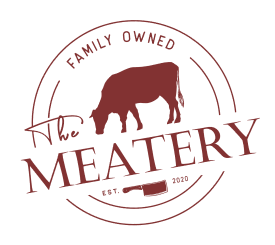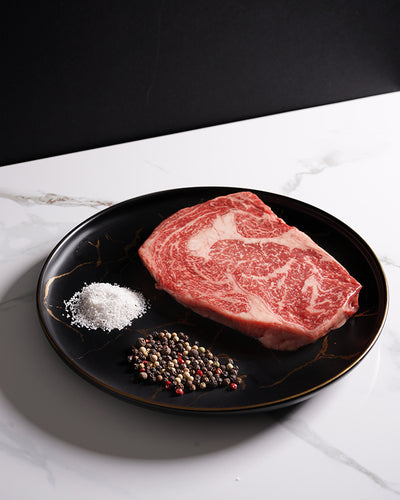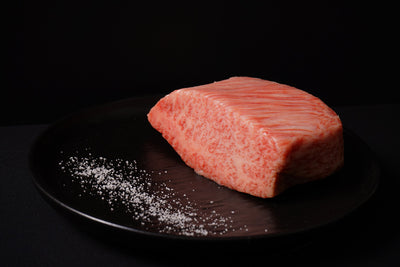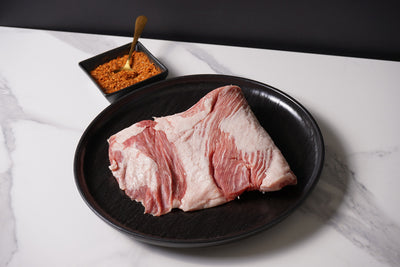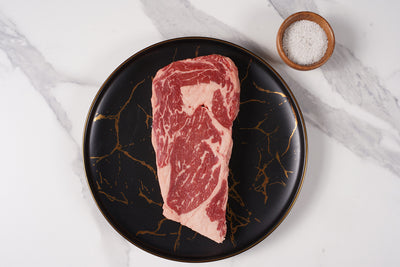The Iberico Pig Breed And Its Characteristics
The Iberico pig, also known as pata negra (black hoof), is a remarkable heritage breed native to the Iberian Peninsula. These distinctive pigs are immediately recognizable by their black hooves, dark skin, and elongated snouts. What makes Iberico pigs truly unique is their genetic predisposition to intramuscular fat marbling, creating meat of exceptional quality and flavor.
These pigs possess several distinctive characteristics that set them apart from other breeds:
- A longer, leaner body structure compared to conventional pigs
- Higher capacity to store fat within muscle tissue
- Slower growth rate, typically taking 2-3 times longer to reach market weight
- Enhanced endurance and mobility, allowing them to roam extensively
The breed's genetic makeup is crucial to its exceptional meat quality. Iberico pigs have evolved over centuries to develop a unique enzyme system that helps them convert acorns and other forage into healthy oleic acid-rich fat. This biological process results in meat with a distinctive nutty flavor and buttery texture that's prized worldwide.
Diet Of Iberico Pigs (acorn-fed)
The legendary quality of Iberico pork is intrinsically linked to the pigs' diet, particularly during the montanera - the traditional acorn-feeding period. From October to February, pure-bred Iberico pigs roam freely in the dehesa, a unique ecosystem of oak forests found in western Spain and Portugal.
During this period, each pig consumes approximately:
- 10-12 kg of acorns (bellotas) daily
- Various wild herbs and grasses
- Natural minerals from the soil
This acorn-based diet is crucial because it:
- Increases oleic acid content in the meat
- Creates the characteristic nutty flavor
- Contributes to the meat's healthy fat profile
- Enhances marbling throughout the muscle tissue
Sustainability And Farming Practices
The production of Iberico pork represents one of the most sustainable livestock farming systems in the world. The dehesa ecosystem, where these pigs are raised, is a model of environmental harmony and biodiversity conservation.
Key sustainable practices include:
- Low-density farming (1-2 pigs per hectare)
- Natural grazing that helps maintain woodland health
- Preservation of ancient oak forests
- Support for local biodiversity
Traditional farming methods ensure that the pigs contribute to the ecosystem's health while producing exceptional meat. This symbiotic relationship between the animals and their environment has remained largely unchanged for centuries, proving its sustainability.
What is the Iberico Secret?
The exceptional quality of Iberico pork stems from a perfect combination of genetics, diet, and lifestyle. The secret lies in several key factors:
- Genetic Predisposition: Natural ability to produce intramuscular fat
- Free-range Lifestyle: Constant exercise developing muscle quality
- Diet: Acorn-rich nutrition creating unique flavor profiles
- Slow Growth: Extended maturation period enhancing meat development
The combination of these factors results in meat with extraordinary marbling, tenderness, and a complex flavor profile that's often compared to aged beef or fine wine.
Why Can Iberico Pork Be Served Pink?
Unlike conventional pork, Iberico pork can be safely served medium-rare to medium. This unique characteristic is due to several factors:
- Higher muscle pH levels that inhibit bacterial growth
- Dense muscle structure that prevents bacterial penetration
- Strict farming practices ensuring food safety
- Higher intramuscular fat content protecting the meat
When cooked to medium-rare (145°F/63°C), Iberico pork reveals its full flavor potential and maintains its signature tenderness. The meat's safety at these temperatures has been verified through extensive research and testing.
How Best to Cook Iberico Pork?
To maximize the exceptional qualities of Iberico pork, proper cooking techniques are essential:
-
Temperature Control:
- Bring meat to room temperature before cooking
- Cook to internal temperature of 145°F/63°C
- Rest for 5-10 minutes after cooking
-
Cooking Methods:
- Grilling: Quick searing over high heat
- Pan-searing: Cast iron preferred
- Minimal seasoning to preserve natural flavors
The key is to avoid overcooking, which can diminish the meat's natural flavors and unique texture. Simple preparation methods that highlight the meat's inherent qualities typically yield the best results.


